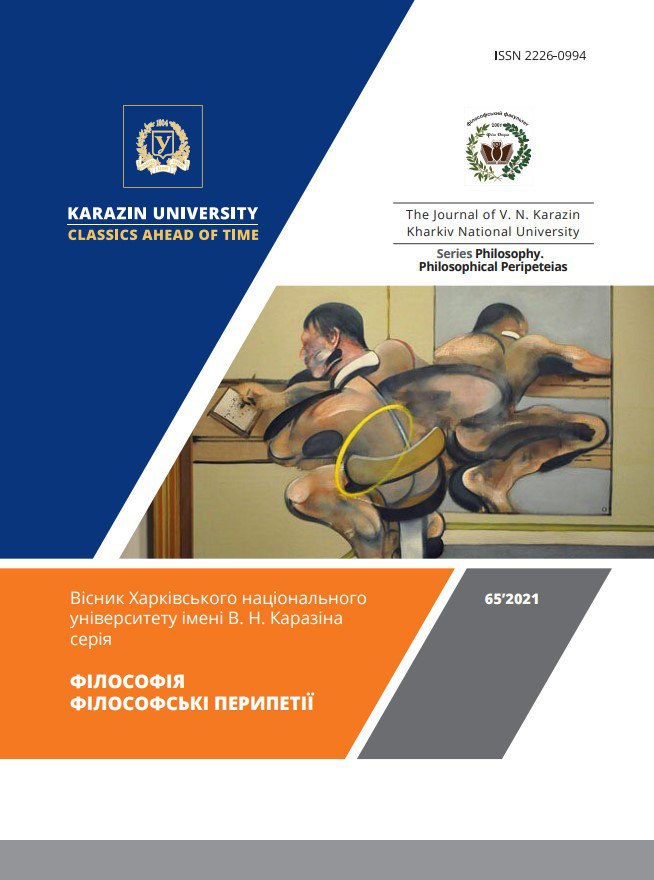THE RIGHT TO LANGUAGE CORRECTION: THE AUTHORITY OF NATIVE SPEAKER OVER NON-NATIVE SPEAKER
Abstract
This article is devoted to the question of how a native speaker exercises his authority over a non-native speaker. The research was carried out within the framework of the theory of linguistic imperialism. To reveal these relations, the concept of the right to correction is introduced. To describe the figures of native speaker and non-native speaker, we turn to researchers of linguistic imperialism, in particular R. Phillipson, Yu. Tsuda, etc. It is said that the standard view of the dominance of the native speaker is socio-economic, where the native speaker appears as a figure around whom opportunities for economic interaction and economic profit are concentrated. On the contrary, the right to correction demonstrates the native speaker's authority at the communicative level. The essence of the right to correction is as follows: a native speaker, as someone who is originally immersed in the language and understands it better, has the right to correct the language of a non-native speaker. To explain this concept, we turn to the concept of sociolects by R. Barthes and exclusion strategies described by J. Rancière. The basis for the right to correction is the idea that the language can best be known by those who are rooted in the linguistic and cultural environment from which the language originates - this idea is a figure of consistency in the understanding of R. Barthes. The right to correction is interpreted as a mechanism that performs several functions. First, it is the practice of discrediting non-native speaker speech, labelling it as noise. Secondly, it is the practice of interpellation and formation of the non-native speaker as the object of speech, and the native speaker as the Subject. Thirdly, it is the possibility of appropriating the speech of a non-native speaker, and therefore, depriving this speech of the property of imperativeness, authority. The goal of linguistic imperialism is to create a single (global) logic for the exclusion of non-native speakers from the (global) communicative space. In this logic, language acts as a code similar to the code described by G. Deleuze.
Downloads
References
Barthes R. (1989). War of the languages. In Roland Barthes - Selected works. Semiotics. Poetics (pp. 535–540). Moscow: Progress. (In Russian).
Barthes R. (1989). Hum of the languages. In Roland Barthes - Selected works. Semiotics. Poetics (pp. 541–544). Moscow: Progress. (In Russian).
Barthes R. (1989). Separation of languages. In Roland Barthes - Selected works. Semiotics. Poetics (pp. 519–534). Moscow: Progress. (In Russian).
Gorbunova L. S. (2014). Transcultural educational strategy in the context of challenges of globalization. Philosophy of education. 2014, 1, 158–198. (In Ukrainian).
Deleuze G. Postscript on the societies of control. Retrieved from: http://www.ji.lviv.ua/n34texts/deleuze.htm. (In Ukrainian).
Kozak T. M. (2014). The theory of linguistic imperialism as a reaction to the global spread of the English language. Philosophy and political science in the context of modern culture. Dnipropetrovsk, 2014, 8, 211–216. (In Ukrainian).
Larchenko V. V. (2007) Language and power: the global/local relationship in the discourse of postcolonialism. (PhD thesis). Kharkiv: V. N. Karazin Kharkiv National University. (In Russian).
Pershukova O. (2019). Peculiarities of the formation of linguistic personality of users of global English. In T. O. Ponomarenko (Ed.), Moderation as an innovative form of education in the conditions of a higher education institution (pp. 69–72). Kyiv: Borys Grinchenko Kyiv University. (In Ukrainian).
Rancière G. (2013) Disagreement: Politics and Philosophy. Saint Petersburg: MACHINA. (Original work published 1995). (In Russian).
Rancière G. (2013) The Ignorant Schoolmaster: Five Lessons in Intellectual Emancipation. (A. Repa Trans.). Kyiv: Nika-center. (Original work published 1987). (In Ukrainian).
Barrantes-Montero L. G. (2018) Phillipson’s Linguistic Imperialism Revisited at the light of Latin American Decoloniality Approach. Educare, Eradia, 2018, Vol. 22 No. 1.
Gogolin I. (2013) The “monolingual habitus” as the common feature in teaching in the language of the majority in different countries. Per Linguam. Gamburg, 2013, Vol. 13 No. 2.
Isik A. (2008) Linguistic Imperialism and Foreign Language Teaching. The Journal of AsiaTEFL. 2008, Vol. 5, No. 1, 123–144.
O'Regan J. Capital and the Hegemony of English in a Capitalist World-System. In R. Rubdy, R. Tupas, M. Saraceni (Ed), World Englishes: Ideologies Vol. II. London: Bloomsbury, 2021.
Phillipson R. Linguistic imperialism of neoliberal empire. Critical Inquiry in Language Studies. Philadelphia, 2008, 5, 1–43.
Tsuda Y. The Hegemony of English and Strategies for Linguistic Pluralism: Proposing the Ecology of Language Paradigm. The Global Intercultural Communication Reader 2nd Ed. London, 2013.
Citations
LANGUAGE EXPANSION AS A NECESSARY MEASURE FOR THE (ECONOMIC-)IMPERIALIST RELATIONS
Panov Volodymyr (2023) The Journal of V. N. Karazin Kharkiv National University, Series "Philosophy. Philosophical Peripeteias"
Crossref
Copyright (c) 2021 Володимир Панов

This work is licensed under a Creative Commons Attribution 4.0 International License.
Authors who publish with this journal agree to the following terms:
- Authors retain copyright and grant the journal right of first publication of this work under the terms of a license Creative Commons Attribution License 4.0 International (CC BY 4.0).
- Authors are able to enter into separate, additional contractual arrangements for the non-exclusive distribution of the journal's published version of the work (e.g., post it to an institutional repository or publish it in a book), with an acknowledgement of its initial publication in this journal.
- Authors are permitted and encouraged to post their work online (e.g., in institutional repositories or on their website) prior to and during the submission process, as it can lead to productive exchanges, as well as earlier and greater citation of published work.






3.gif)




